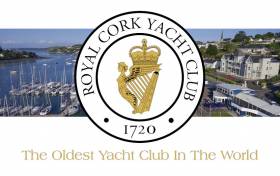Displaying items by tag: Global Team Racing Regatta
Royal Cork Place Fifth In Second Global Team Racing Regatta
A team from Royal Cork Yacht Club made a strong showing in Cowes at the second annual Global Team Racing Regatta over the weekend.
Extreme conditions beset the 12-team fleet hosted by the Royal Yacht Squadron, all racing in matched J70s that faced winds rarely less than 18 knots.
Each day saw a similar pattern of fresh breeze mounting to gale force by early afternoon resulting in racing being abandoned.
Despite this, the race management team delivered a full round robin that was fought hard to the very end, with a thrilling climax that saw St Francis Yacht Club from San Francisco awarded the title after two late errors by last year’s winners, the contingent from Royal Thames.
The Global Team Racing Regatta, of which the Royal Cork was a part in its debut last year, will move to Italy for its third edition in 2020 where it will be hosted by the Yacht Club Costa Smeralda.
Final Standings
- St Francis Yacht Club (USA)
- Royal Thames Yacht Club (GBR)
- New York Yacht Club (USA)
- Newport Harbor Yacht Club (USA)
- Royal Cork Yacht Club (IRL)
- Dutch Match and Team Race Association
- Royal Yacht Squadron (GBR)
- Bayerischer Yacht Club (GER)
- Sorrento Sailing Couta Boat Club (AUS)
- Yacht Club Argentino (ARG)
- Japanese Sailing Federation (JAP)
- Royal Bombay Yacht Club (IND)





























































